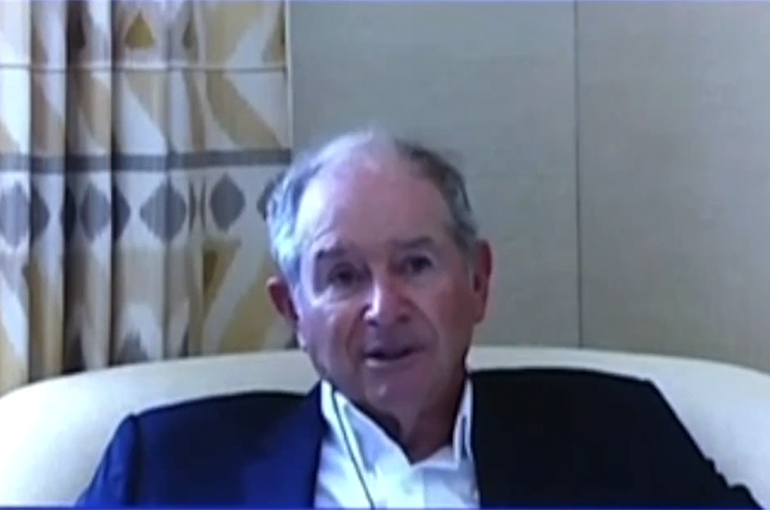 AI Can Rip Hearts Out Once Developed, Blackstone Chairman Says
AI Can Rip Hearts Out Once Developed, Blackstone Chairman Says(Yicai) July 4 -- "AI can just rip your heart out once it gets developed," said the chairman of Blackstone, the world's largest alternative asset manager, to warn about the risk of the rapid development of artificial intelligence in some businesses.
"We're not like stock investors who can trade out of something if they don't like it," Stephen A. Schwarzman, who is also chief executive and co-founder of Blackstone, told Joshua Ramo, chairman and CEO of strategic advisory firm Sornay, in a dialog at the Shanghai World AI Conference, which opened today.
"We own our hard assets, and so we have to look at something over a 5 and 10-year period to assess what's going to happen to that kind of business if AI develops in a certain way," Schwarzman noted. "There'll be big winners, and there'll be losers."
Large language models have been used in cloud and infrastructure in the past two years, and Blackstone is emphasizing where the data has been generated, where the action needs to take place, and how to keep it secure at the root, according to Schwarzman.
Some businesses adapt extremely well to AI aspects, but others do not as well, Schwarzman pointed out, noting that Blackstone always takes this into account when looking at any potential investment.
Although AI can do a lot of tasks, such as, to Schwarzman's surprise, a bunch of first drafts of investment committee memos, he said to keep "people's expectations low, but their fear high."
Schwarzman Center is the home to Oxford's new Institute for Ethics in AI. "I did this because as everybody is rushing to STEM (science, technology, engineering, and mathematics), I saw the need to integrate that with what happens to humans out of all this stuff because it is going to change what human beings do ten to twenty years from now," said Schwarzman, who is also part of the Stanford Institute for Human-Centered AI.
Universities are at a disadvantage compared to the commercial world, which can afford the computing time, Schwarzman pointed out. Therefore, an alliance must be established more thoughtfully than just sponsoring a professor or their research, so more meetings will be organized to do so, he added.
Editor: Marting Kadiev